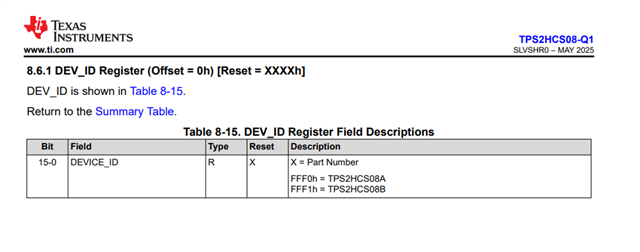Tool/software:
I have been trying to communicate with the Efuse via the onboard SPI pins using another Microcontroller as a master, and I get incorrect read data back from the Efuse registers. I have scoped the SPI commands, and they follow the specifications in the Efuse datasheet, but the data is coming back mainly as 0x80FF or 0x00F8, no matter which register I read from.


